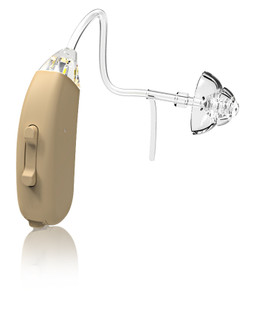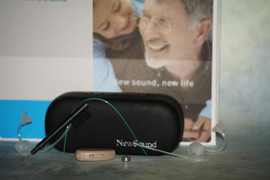AI and Hearing Aids: How AI Is Changing the Game
Posted by DR Paul on Jan 11, 2024
Many advances in technology have been made in the recent years. One of these advancements is the integration of artificial intelligence (AI) with hearing aids to improve hearing experience for users. In this blog post, we’ll explore how AI-based hearing aids are changing the game for people with hearing concerns.
Hearing Aid Personalization
AI-based hearing aids use machine learning algorithms to analyze user data such as listening environments, sound profile, and personal preferences to create a customized hearing experience. These hearing aids can automatically adjust settings based on the user’s listening environment, making it easier to hear in complex situations like noisy environments or crowded areas. In addition, the personalization feature enables users to have a better quality of sound, reducing the stress and strain on their ears when communicating with others face-to-face or over the telephone.
Hearing Aid Adaptability
One great advantage of AI-based hearing aids is their adaptability. They can learn to adjust to different environments and pick up on specific sounds with just a few uses. For example, if the user often visits the same café, the hearing aid can remember and memorize the sound of machinery, music, and chatter in the café, so that by the time the user visits the café again, the hearing aid already knows the environment and automatically adjusts its settings appropriately.
Hearing Aid Connectivity
AI-based hearing aids often connect to smartphones and other mobile devices. This provides the user with more options for controlling their hearing aid, including changing settings remotely to fit their current environment, or even capturing and saving the sound in different environments for future reference. Connectivity with other devices like wireless microphones, televisions, or music players, allows for seamless synchronization and reduced lag time.
Early Detection of Hearing Problems
AI-based hearing aids are not only improving the hearing experience of users, but they can also help users identify any hearing loss early on. The hearing aid’s machine learning technology has the ability to track and learn from the user's hearing status and compare it to the expected hearing range based on their age. If the AI algorithm detects any significant deviation from the expected range, it signals the user to seek professional advice and evaluation from an audiologist.
Real-time Assistance
Lastly, AI-based hearing aids bring real-time assistance to users. This technology can be used to give real-time feedback to the user when they are speaking too loudly or too softly in order to moderate their voice. AI-based hearing aids can also be equipped with real-time language translation features, allowing easy communication with others who don't speak the same language.
Artificial intelligence has brought remarkable advancements in the field of hearing aid technology. With personalization and adaptability features, better connectivity, early detection of hearing problems, and real-time assistance, AI-based hearing aids have dramatically improved the quality of life of hearing aid users. The use of AI in hearing aids has revolutionized the way people with hearing issues experience the world around them, making it possible for them to converse, listen to music, and enjoy life to the fullest. The future of hearing technology is bright, and AI is set to play a significant role in it.










